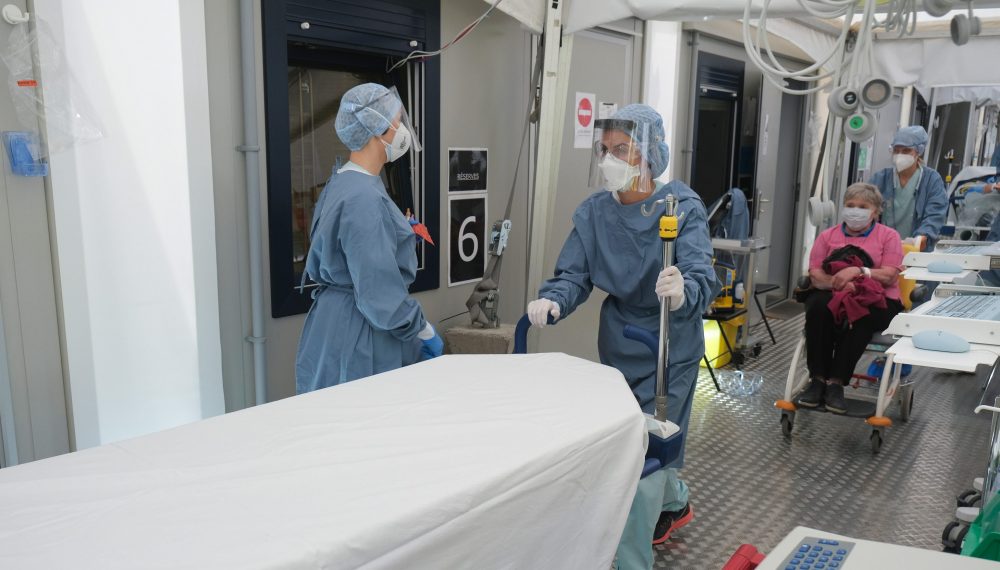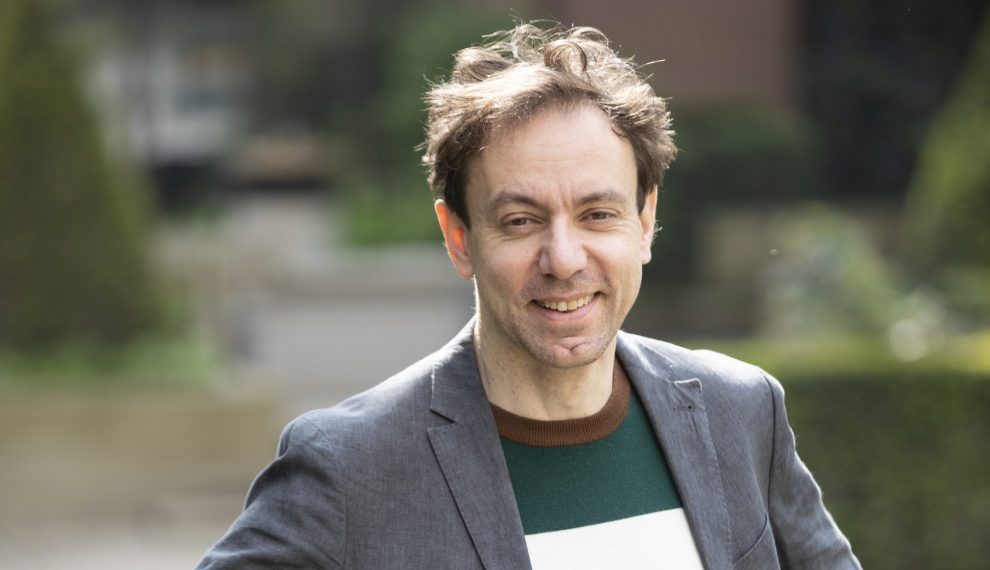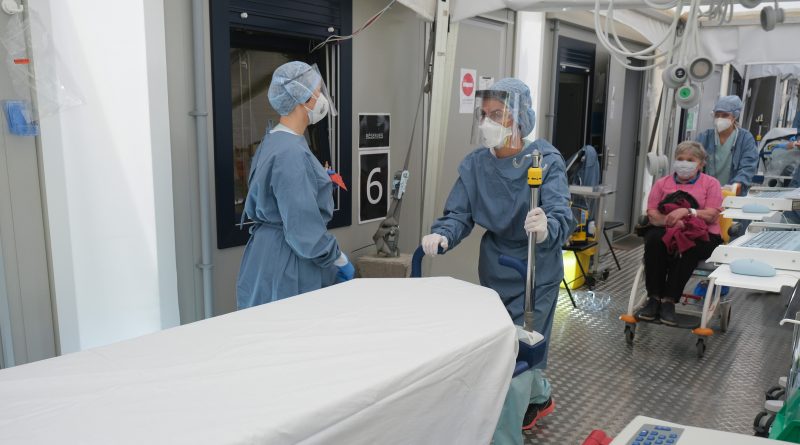SOCIAL AGREEMENT IN THE NON-PROFIT BRINGS GOOD NEWS

“More than 400,000 employees see their wages increased substantially”
After months of negotiations, the social agreement for the non-profit sectors has finally been reached. Negotiator Olivier Remy is tired but satisfied. “The past few months have been very unusual and intense. With a lot of long nights negotiating from behind a screen. Efficient, but exhausting. The result, however, is extremely satisfying. In the coming weeks, we will roll out a number of major agreements in the healthcare sector that will make a very tangible difference in the workplace.”
“The havoc wreaked by the coronavirus has generated a political willingness for which we have had to fight for years,” he explains. “This acceleration was truly remarkable for us and the staff.” However, because of corona, it all went differently than usual. “Organizing staff involvement in our meetings also had to go completely differently than usual. Social media has really helped us in this regard.” The work is not done yet, Olivier knows. But a huge step has been taken. “And that, of course, feels very good, after years of poking and prodding.”
News coverage of working conditions in the care sector has been constant in the past year. How did this help accelerate change?
Olivier: “The pandemic has sharply brought into focus issues with which healthcare staff have been faced for years. This has helped us make impressive advancements in a process in which we have been engaged for 15 years. As early as 2005, we started discussions regarding contemporary job descriptions with matching remuneration for the healthcare sector. A person’s wages at that time were determined on the basis of schemes dating back to well into the previous century.
Many more recent developments in the competencies that are relevant in the care sector were completely absent. This creates a lot of uncertainty and discussion, but also does not make the sector very attractive as an employer. On a scientific basis and with the expertise of data analysts and process supervisors, we have defined almost 200 functions in the care sector, and linked them to an appropriate salary model. The banking crisis then threw a big spanner in the works: there was no budget to put this equitable remuneration into practice. For years we kept up the pleas. We have a tradition in the sector of closely involving staff in the negotiations, informing them, and giving them the opportunity to show themselves how important certain points are to them. Consequently, different campaigning approaches were employed.
On March 5, 2020, we took the streets with a large number of colleagues from the care sector to underscore that the additional cuts that were announced were truly unacceptable. The understaffing in the sector is jeopardizing the quality of care. And then came the pandemic, which exposed our point for all to see. On June 18, the staff creatively raised the alarm with another day of action, without compromising patient care. Then the government finally understood that intervention was necessary.”
“Because of the pandemic, the government finally understood that intervention was necessary.”
What does the agreement mean in concrete terms for employees in the care and welfare sector?
Olivier: “More than 400,000 employees see their wages substantially increased because the wage model negotiated at the time is at once fully implemented as of 1 July. In addition, 8,000 jobs will be created, about 3,800 of which in Flanders, to reduce the workload and improve the quality of care. The pay increase will apply to almost all profiles. First-time employees now start at a significantly higher wage within the sector. Afterwards, one’s salary will continue to evolve, but less markedly so than in the initial phase.
Many positions that were not clearly defined before, such as heads of departments, IT staff and quality policy staff, now obtain a clear description of their responsibilities and matching appreciation. In the past, a proliferation of premiums and allowances was developed in order to attract suitable profiles, which can now simply be integrated into the gross salary. That is also a step forward for derived benefits such as one’s year-end premium or your pension accrual.”

Thousands of new jobs added: will they actually be filled? Finding staff in the care sector proves difficult.
Olivier: “That is precisely why raising the starting salary is so important. But we have also strengthened the agreements regarding lateral entrants. 950 employees from other sectors are given the opportunity to start a job in the care sector and to first follow the necessary training while retaining the salary of their new employer. This is possible after a thorough selection of the candidates, which means that the success rate for highly motivated participants is very high.”
“We have also strengthened the agreements regarding lateral entrants. 950 employees from other sectors are given the opportunity to follow training and start working in the care sector.”
How do you, as an employee, find out what the new salary model means for your individual situation?
Olivier: “We try to coach our representatives as best we can to act as the first point of contact
in the workplace. This requires a great deal of technical insight and service-providing competencies, in which we assist them. Of course, members can also be referred to our professional service providers. We also have an online tool (https://ific100.wittewoede.be, Ed.) where you can verify for yourself how the rollout of the salary agreement applies to you.”
How did you experience the road you had to travel as a negotiator to achieve this result?
Olivier: “It truly was a remarkable chapter. As a trade union we are a movement, we bring people together, we mobilize and try to realize social progress while strengthening the social fabric. Now we had to do the same, but in the midst of a highly extraordinary crisis, where everyone in the sector was in one way or another overwhelmed by the circumstances. That was very invasive. I am now looking forward very much to being able to get together with all our people under normal circumstances, and review what we have achieved together. This does not necessarily have to be at a demonstration (laughs), simply being together again will be nice!”

